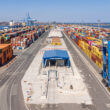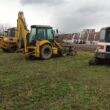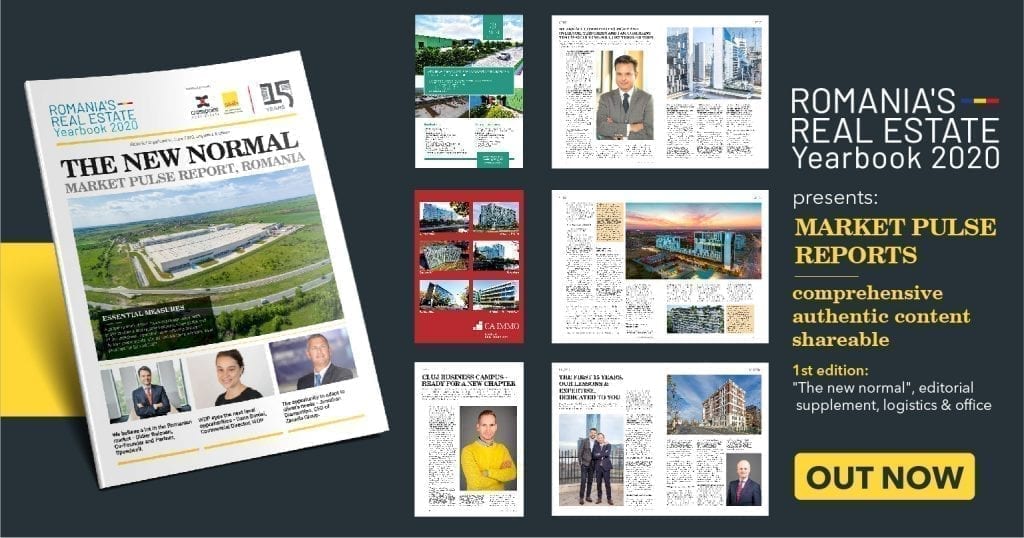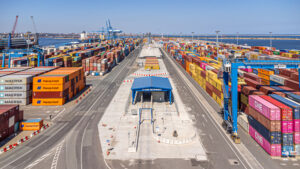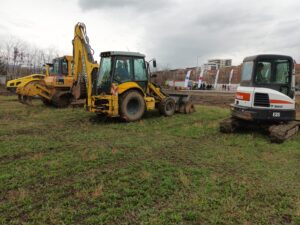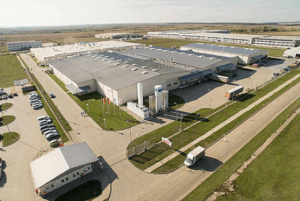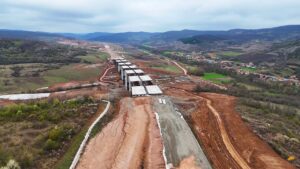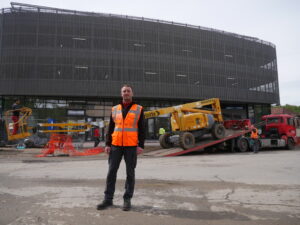The past two months have been the strangest of times in my 39 years of working in the logistic real estate market. Drive anywhere in Romania during these past two months and 90% of the traffic has been lorries.
We don’t normally notice these huge gargantuan creatures that snail their way across Romania and Europe, but whilst we have all been in lockdown in our homes, so these vehicles have kept working to ensure that supermarkets have all the food and supplies that we, as consumers, need. But they have also been filling up the fulfillment warehouses that have allowed the big online retailers to feed our ever-growing on-line appetite. eMAG saw an increase in sales of 30% during the lockdown period alone and other e-commerce companies saw similar growth.
There is a saying in England that ‘Every cloud has a silver lining”. Covid-19 has been that silver lining for on-line retailers. Normal people who have never ventured online before have suddenly found themselves with their nose close to a screen as their fingers valiantly fight with a keyboard and the on-line ordering systems of the retailer with whom they are buying from. It is not just young people who have found a new way of life on-line but across Europe 83% of people between the ages of 65 and 74 are now buying online. This age group is known as the Silver dollar, and it is spending well.
This increase for on-line demand was already happening across the world, but the virus has accelerated this demand to warp speed. The effects will be felt from now onward. Shops that have suffered hugely will now be fighting to claw back their customers. Customer loyalty is a thing of the past for the shops, ease of delivery and return of goods is the future.
There is a downside for the planet to this increased demand in that we all have seen how much lorries can pollute the air that we breathe. We have all seen the damage to the roads that a 38 tonne lorry can cause. But we all forget this damage as we order online. Electric lorries offer a solution and I believe that these will be on our roads sooner than we think.
The big grey boxes that you see adjacent to our roads and motorways are where nearly all the goods that you eat, use and wear are stored and these are now the new virtual shops of the future. I can see that there will be an increase in the demand for warehouses springing like a gazelle from all of our new online skills. Not only are these warehouses used to deliver goods, but they are also used for the goods that you return, each of which has to be checked by a human to see if they have been worn or used before being returned.
But what of the future? Logistics demand is always associated with the strength of the economy and people’s confidence in the market, which influences their spending pattern. This is the great unknown at present and the only cloud on the horizon. With over 30% of the global population in lockdown and with business still trying to work out how many staff to re-employ, so the future spending power of the population is unknown. This uncertainty will affect the demand for logistics.
The economies of the world will recover. They did after two World wars, after the Spanish flu of 1918, after 9/11 and more recently after the recession of 2008. The economic recovery may be quick, in which case we will all be happy, but it could also be a slow process taking many months, and even longer if a second wave of the virus emerges as people forget the new rules of post Covid life, hygiene, social distancing and wearing masks.
For Romania and its regional markets there are two possible scenarios.
First, there will be a reduction in demand for new warehouses as Pan European and internal consumption drops. There was growing demand for larger warehouses, but this demand will now slow down and there may also be additional vacancy on the market as occupiers either go bust or reduce their warehousing needs.
The second scenario is that as demand in Western and Central Europe drops so suppliers will become more cost sensitive. This will drive to an increase in production in Romania which will be further boosted by the fact that consumers are now worried to see “Made in China” on what they buy. Increased manufacturing needs more warehouses and so Romania will benefit.
International developers such as CTP have had much success in building speculatively and in buying both in Bucharest and many major secondary cities. P3 Logistic Parks have kept their focus in and around Bucharest, but they keep an eye out for further opportunities in major secondary markets. Other developers such as WDP continue to develop but it will be interesting to see how the effect of Covid 19 will affect the smaller developers who will now find it difficult, if not impossible , to secure debt for development. This in turn will mean far less choice for those companies which require new space as less warehouses will be built speculatively.
Over the past few years the automation of warehouses, through the use of robots or artificial intelligence, has increased throughout Western Europe. Due to the lower cost of employing staff in Romania so this has not been a major factor. However, this move to automation may now increase even in Romania. There are already fully automated manufacturing plants in Romania that make washing machines and car parts. Through the uncertainty that another increase in the spread of Covid 19 could lead to a further longer lockdown and a halt to production, so manufacturers will look to fully automate their manufacturing and warehouses. Robots do not catch the Covid 19 virus nor need to sleep, eat or use the restrooms!!!!!
Of all the real estate sectors, warehousing is the most resilient to the current World crisis, but have no doubt, it will be affected and there will be some form of correction. Land prices are, and will, continue to drop, speculative build will dry up and construction prices will drop.
Romanian demand has always been linked to its European partners and their hunger for goods. The next 6 months could prove interesting as the Covid 19 story plays itself out.
Ian Worboys – Entrepreneur and former CEO P3 Logistic Parks
Ian has 39 years’ experience in the Pan European Logistic real estate market and he led the expansion of P3 into Romania.
An article published in the exclusive supplement – „Market pulse report, Romania – The new normal” | June 2020
A property market tour, including major cities, with projects status and updated opportunities at the end of the lockdown in Romania – June 2020. | Essential news with the current status of further investments, clients and partners relations, new priorities for the post crisis cycle. | B2B communication report – to help you mark your statements during the changes period.
Content partner: Crosspoint
Partners: CA IMMO, CATTED Business Park, Cluj Business Campus, Vox Property Group
